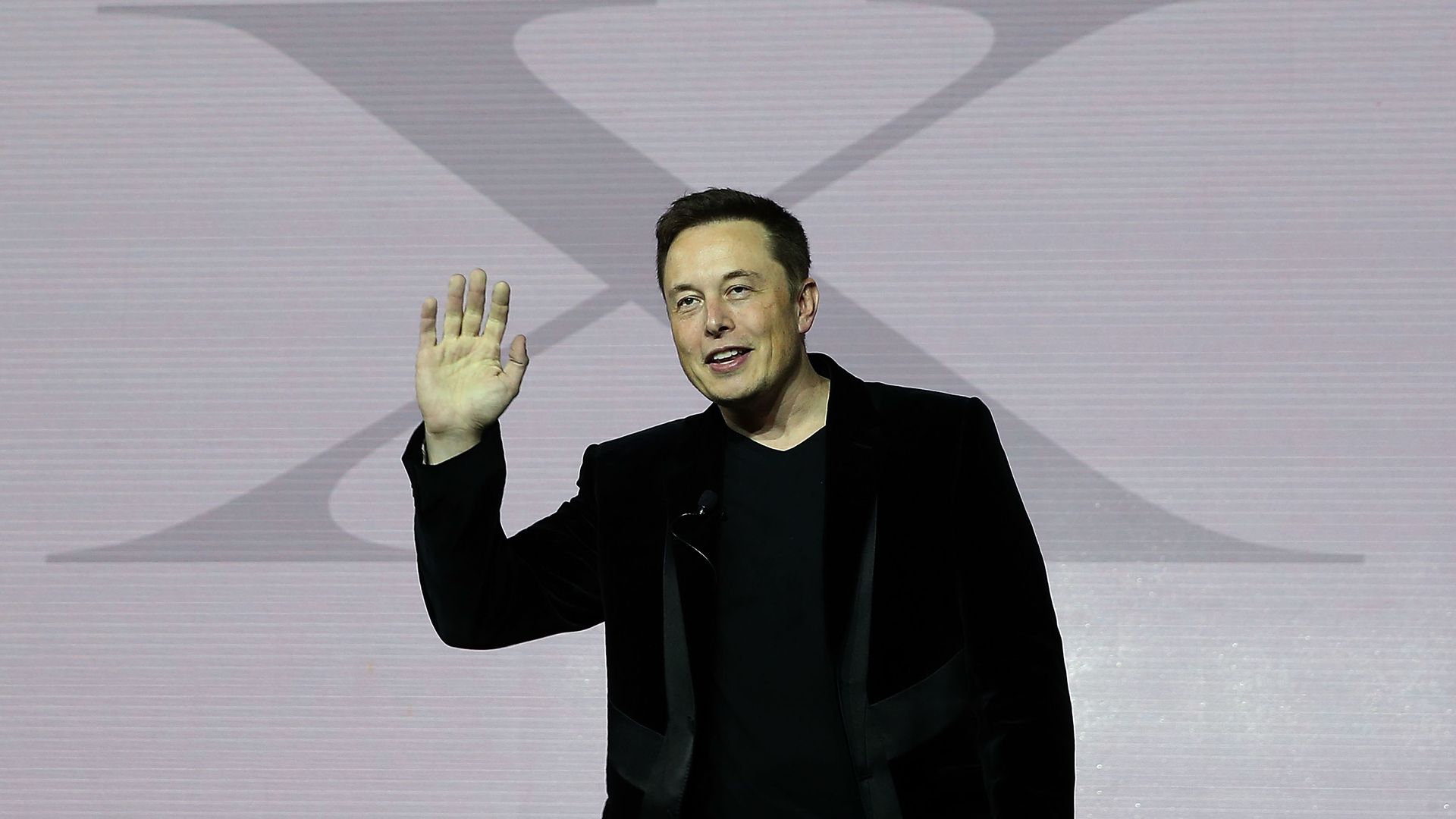| | | | | | | Presented By OurCrowd | | | | Axios Markets | | By Emily Peck and Matt Phillips · Apr 14, 2022 | | 👋 Happy Thursday to all of you at home or in the office, where many of you have been working for a good long time. Thanks to those of you who wrote in and reminded us that WFH is hardly universal. 🗓 Today at 12:30pm ET, please join Axios' Brady Dale and Lucinda Shen for a virtual event on trends in cryptocurrency. Register. Today's newsletter is 1,071 words, 4.5 minutes. | | | | | | 1 big thing: Big Labor's pivotal moment |  | | | Illustration: Annelise Capossela/Axios | | | | A lack of leadership and too much focus on D.C. politics is holding back momentum around unionization, labor advocates familiar with internal workings at the AFL-CIO, the umbrella organization for 57 unions and 12.5 million workers, tell Emily. Why it matters: With a sympathetic White House, a tight labor market and workers around the country voting to unionize, this should be Big Labor's moment. And grassroots efforts are taking off. But insiders say institutional labor is so far failing to live up to the challenge. State of play: The big unions are too focused on getting legislation passed in Congress and haven't paid enough attention to grassroots organizing efforts. "Labor can't just act or be perceived as a wing of the Democratic party," says Sara Nelson, president of the Association of Flight Attendants (part of the AFL-CIO). - "For far too long our growth strategy has been entirely attached to politics, but that has failed us over and over," Tefere Gebre, who just stepped down as executive vice-president of the AFL-CIO, told The Guardian.
Catch up fast: The successful Amazon union vote in Staten Island earlier this month is just one example of a grassroots effort that took Big Labor by surprise. - Momentum for organizing has been building in the U.S. since 2018 when a record number of workers went out on strike, but it was the pandemic and the current labor shortage that really served to energize hourly workers in the U.S.
Yes, but: Big Labor has failed to capitalize on this energy, insiders say. During the height of the pandemic, there was a real opportunity for so-called essential workers to bargain for increased pay and better benefits. They largely missed it. - "There has been a complete lack of leadership, vision, or strategy to meet this moment by bringing us together in the 'House of Labor,'" says Nelson, the flight attendants' union president. "But I see leadership in every workplace, every industry, on every picket line, and I know this is the moment that change is coming," she adds.
In a column this week, Jon Hiatt, the former general counsel for both the AFL-CIO and the SEIU (the service workers union), calls for a systematic program organized at the national level to provide assistance to worker-organized efforts around the country. This would offer funding, legal advice, employer research and bargaining support that smaller grassroots efforts lack. The other side: The big labor unions say they're excited by and supportive of these recent wins. - "The AFL-CIO's priorities have always, and will always, be focused on making a difference in the lives of working people," said Liz Vlock, the organization's press secretary.
Keep reading. |     | | | | | | Bonus chart: Labor's big decline |  Data: BLS.gov; Chart: Axios Visuals |     | | | | | | 2. Catch up quick | | 🛢 Russian oil production shows signs of slowing. (WSJ) ⚠️ Yellen warns China about helping Russia evade sanctions. (Axios) ☕️ Starbucks to expand benefits that might exclude unionized staff. (WSJ) |     | | | | | | A message from OurCrowd | | AI-powered platform helps companies combat disinformation | | |  | | | | Using AI to analyze billions of conversations across online platforms, Cyabra is disarming disinformation and delivering deep consumer insights to companies. Cyabra is trusted by high-level government agencies, global media companies and more. Explore Cyabra's investment potential. | | | | | | 3. Elon brings the bear hug |  | | | Elon Musk. Photo: Justin Sullivan/Getty Images | | | | Elon Musk's offer to buy Twitter at a premium will make it awfully tough for management to demure, Matt writes. Driving the news: The Twitter-obsessed billionaire — arguably the world's richest man — offered to pay $54.20 per share in cash for the firm according to an S.E.C. filing. - That values the company at $43 billion.
"My offer is my best and final offer and if it is not accepted, I would need to reconsider my position as a shareholder," Musk wrote, in a letter addressed to Twitter's board. Quick take: On Wall Street, such unsolicited, juicy offers are known as "bear hugs." And they leave little room for executive teams to avoid being acquired. - If the board votes not to be acquired, at what would be a clear financial win for shareholders, it can open up the company to a slew of lawsuits arguing that management is not acting in the interest of shareholders.
- That's an unpleasant alternative to walking away from a successful sale, that almost certainly will pad the compensation of top managers.
Twitter's stock price jumped more than 10% in premarket trading, though it's only trading at around $50 a share, below the $54 that Musk offered. The bottom line: Trading so far suggests investors are a bit skeptical this deal will go through. And who can blame them, we all remember "funding secured." |     | | |  | | | | If you like this newsletter, your friends may, too! Refer your friends and get free Axios swag when they sign up. | | | | | | | | 4. How Biden's economists view the inflation-stimulus connection |  Data: White House Council of Economic Advisers via national statistics agencies; Chart: Axios Visuals The U.S. spent more on its pandemic relief efforts than other nations. The results have been higher inflation — but also a much more rapid recovery, Axios' Neil Irwin writes. - That narrative is a key takeaway from the "Economic Report of the President," published this morning, that gives the administration's official analysis of economic conditions.
Why it matters: The Biden team isn't disputing that the president's signature pandemic aid, the $1.9 trillion American Rescue Plan, contributed to inflation. Rather, they argue that it has created benefits that put the U.S. economy in a position to be more resilient to the shocks of 2022 — like the Ukraine war and rising interest rates. - The White House Council of Economic Advisers produces the annual economic report, a tome-length document.
State of play: In a chapter focused on international comparisons, the White House economists note that the American fiscal response to the pandemic amounted to more than 25% of GDP, well above the 16% in Canada and 11.5% of the eurozone. - The U.S. has also ended up leading those nations in inflation rates, with consumer prices rising 8.5% from December 2019 to December 2021 in the U.S. versus 5.5% in Canada and 4.7% in the eurozone.
What they're saying: The American Rescue Plan was a kind of insurance policy," CEA chair Cecilia Rouse said in an interview with Axios. "Go back a year ago, it was not at all a given that we would be here today with historic growth and low unemployment." Keep reading. |     | | | | | | 5. Dimon sees storm clouds |  | | | Photo illustration: Shoshana Gordon/Axios. Photo: Al Drago/Bloomberg via Getty Images | | | | In case you've gotten used to the tedium and predictability of recent years — we kid! — America's favorite silver-maned banker says more volatility is coming, Matt writes. Why it matters: As head of the country's largest bank by assets, JPMorgan chief executive Jamie Dimon is in a prime position to identify emerging economic developments. Driving the news: The just bank reported lower-than-expected earnings, driven in part by losses related to the war in Ukraine. It also set aside nearly $1 billion to potentially deal with additional turmoil. What he's saying: While acknowledging that the economy remains strong at the moment, Dimon pointed to "storm clouds on the horizon." Those include the Federal Reserve's plans to raise interest rates and shrink its bond holdings — known as quantitative tightening, or Q.T. — as well as inflation and the war in Ukraine. - "I cannot foresee any scenario at all where you're not going to have a lot of volatility in markets going forward," Dimon said on a conference call with analysts after the results were released. "Q.T., inflation, war, commodity prices. There's almost no chance you won't have volatile markets."
- "I hope those things disappear and go away, we have a soft landing and the war is resolved," he said. "I just wouldn't bet on all of that."
|     | | | | | | A message from OurCrowd | | Powerful AI software diminishes the impact of online disinformation | | |  | | | | Cyabra helps companies, from government agencies to global media leaders, navigate online disinformation and uncover consumer insights. Cyabra's AI-powered platform analyzes billions of conversations, using over 600 metrics, to detect authenticity of authors and content. Invest now. | | |  | It's called Smart Brevity®. Over 200 orgs use it — in a tool called Axios HQ — to drive productivity with clearer workplace communications. | | | | | | Axios thanks our partners for supporting our newsletters. If you're interested in advertising, learn more here.
Sponsorship has no influence on editorial content. Axios, 3100 Clarendon Blvd, Suite 1300, Arlington VA 22201 | | | You received this email because you signed up for newsletters from Axios.
Change your preferences or unsubscribe here. | | | Was this email forwarded to you?
Sign up now to get Axios in your inbox. | | | | Follow Axios on social media:    | | | | | |













No comments:
Post a Comment